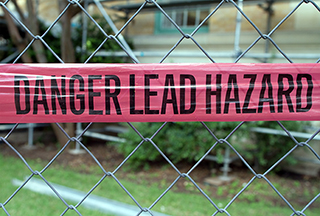Details
2004
Lead Exposure: Increased Risk for Cataracts, Reduced IQ

Lead may be harmful even at very low blood concentrations, according to NIEHS-funded researchers at the University of Rochester School of Medicine and Cincinnati Children's Hospital Medical Center. Overall, each increase of 10 micrograms per deciliter in the lifetime average blood lead concentration was associated with a 4.6-point decrease in IQ (P=0.004).
Previous research was concerned primarily with lead's effects in the 10 to 30 micrograms per deciliter range, yet the new study finds lead-related impairments at lower levels. More U.S. children may be adversely affected by environmental lead than previously estimated. The results emphasize the importance of prevention and add further evidence that there is no safe level of lead exposure.
In another study, scientists demonstrated that lifetime lead exposure may increase the risk of developing cataracts, the leading cause of blindness. Men with high levels of lead in the tibia, the larger of the two leg bones below the knee, had a 2.5-fold increased risk for cataracts.
Canfield RL, Henderson CR, Cory-Slechta DA, Cox C, Jusko TA, Lanphear BP. 2003. Intellectual impairment in children with blood lead concentrations below 10 μg per deciliter. N Engl J Med 348:1517-1526. [Full Text]
Schaumberg DA, Mendes F, Balaram M, Dana MR, Sparrow D, Hu H. 2004. Accumulated lead exposure and risk of age-related cataract in men. JAMA 292(22):2750-2754. [Abstract] [Full Text]
NIEHS Research Funding:
News Release:
- 2004: New Study Links Lead Exposure with Increased Risk of Cataract
Health Information:


